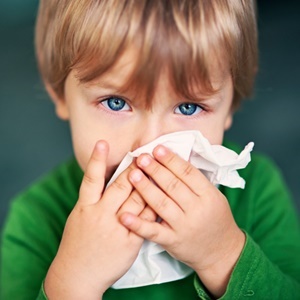
Millions of people worldwide are affected by allergies. In simple terms, when we’re allergic to something, our immune system mistakenly believes that the substance is harmful to our body and launches an attack.
Some allergies, like hay fever, can be seasonal, which means that they only occur during certain times of the year.
Allergies are caused by:
- Things you touch (contact allergy - e.g. latex)
- Things you inhale (inhaled allergy - e.g. pollen)
- Things you eat (ingested allergy - e.g. shellfish)
Allergies can be deadly
In many cases an allergy is just a nuisance, causing reactions like runny or congested noses (inhaled), hives (contact) or digestive (ingested) issues.
Allergies should, however, be taken seriously as in extreme cases an allergic reaction can cause anaphylactic shock and even death.
You've probably had an unpleasant reaction to something you've came into contact with and wondered if you have an allergy. Fortunately true allergies are relatively rare, and according to a study published in The Journal of Allergy and Clinical Immunology less than 4% of the American population have a true allergic reaction to one or more foods.
Good ways of testing for allergies are the skin test and blood test. The blood test measures the levels of IgE antibodies in your body after eating certain foods, while in the skin test microscopic amounts of common allergens are placed under the first layer of skin, and if you're allergic to something, you'll see a mosquito bite-like bump within 15 to 30 minutes.
Allergy, sensitivity or intolerance?
People often think they’re allergic to something when it’s actually only a sensitivity or intolerance. As mentioned above, an allergy involves the immune system, whereas in the case of a food sensitivity or intolerance the reaction is mainly in the digestive system.
1. Ingested allergy
According to Prevention, the following are signs that the reaction you’re suffering after consuming certain foods is not an allergy:
Your symptoms are all in your stomach. Sensitivities and intolerances result mostly in GI complaints like diarrhoea, constipation, gas or bloating. A true food allergy will, however, result in symptoms like hives, swelling, difficulty breathing, wheezing, sneezing and trouble swallowing.
It’s mainly in your head. A headache after eating doesn't indicate an allergy. Headaches and brain fog indicate a sensitivity. The same applies to behaviour changes like hyperactivity. A true allergic reaction is more likely to make one clingy (especially in children), withdrawn and quieter than usual.
Symptoms come on gradually. If you're sensitive or intolerant to something you ate, it might take a few hours for you to feel really bad. Allergic reactions, however, happen quickly and peak around 30 minutes after exposure.
You don't feel the same every time you eat the same food. When you have an intolerance or a sensitivity, you might not experience symptoms every time you eat that food. With food allergies, the reaction happens every time.
You can handle a bit of the food or prepare it in a safer way. Sometimes a little bit might be fine. People tend to be able to handle small amounts of foods they're sensitive to. In the case of an allergy, even a crumb can be enough to cause a reaction.
2. Inhaled allergy
It's often difficult to tell the difference between respiratory ailments like colds and seasonal allergies like hay fever. Colds are largely caused by viruses, whereas inhaled allergies like hay fever are usually caused by airborne pollens.
The following differences can help you to tell seasonal allergies and colds apart:
Consider the time of year. Colds mainly occur in the winter, while seasonal allergies tend to appear in spring. If symptoms occur at the same time each year, it’s likely to be an allergy rather than a cold. If symptoms appear immediately after exposure to pollens it’s probably an allergy as colds take a few days to develop after exposure to a virus.
Duration of symptoms. A cold will usually last three to 14 days, but allergy symptoms last for as long as the person is exposed to pollen.
Colour of nasal discharge. Colds tend to produce green or yellow mucus, while seasonal allergies usually produce clear nasal secretions.
Fever and muscle aches. Seasonal allergies don't usually cause fever or body aches, whereas people with a cold often have these symptoms.
3. Contact allergy
There are many skin conditions that can cause itchiness and rashes, but only some of them are allergy-related.
Various dermatologic conditions affecting the skin can cause itchiness and rashes, but only some are caused by an allergy. Insect bites, autoimmune conditions, fungal, bacterial and viral infections for instance can all cause a rash to appear.
The most common allergic skin rashes are:
Atopic dermatitis (eczema). Atopic dermatitis or eczema frequently occurs in young children. There is a red rash with small blisters or bumps that might flake and ooze. Atopic dermatitis is linked to food allergies.
Urticaria (hives). Urticaria or hives is an itchy rash that appears as raised red bumps of various shapes and sizes. It typically lasts for only minutes to hours. It can be very itchy. Chronic urticaria can, however, last for weeks.
Contact dermatitis (urticaria). Contact dermatitis is caused by direct skin contact with a substance a person is allergic to, causing a rash-like reaction. Examples are cosmetics, metals, topical medications and plants like poison ivy. Urticaria can be acute (lasting less than six weeks) or chronic (lasting more than six weeks).
Image credit: iStock




 Publications
Publications
 Partners
Partners


















